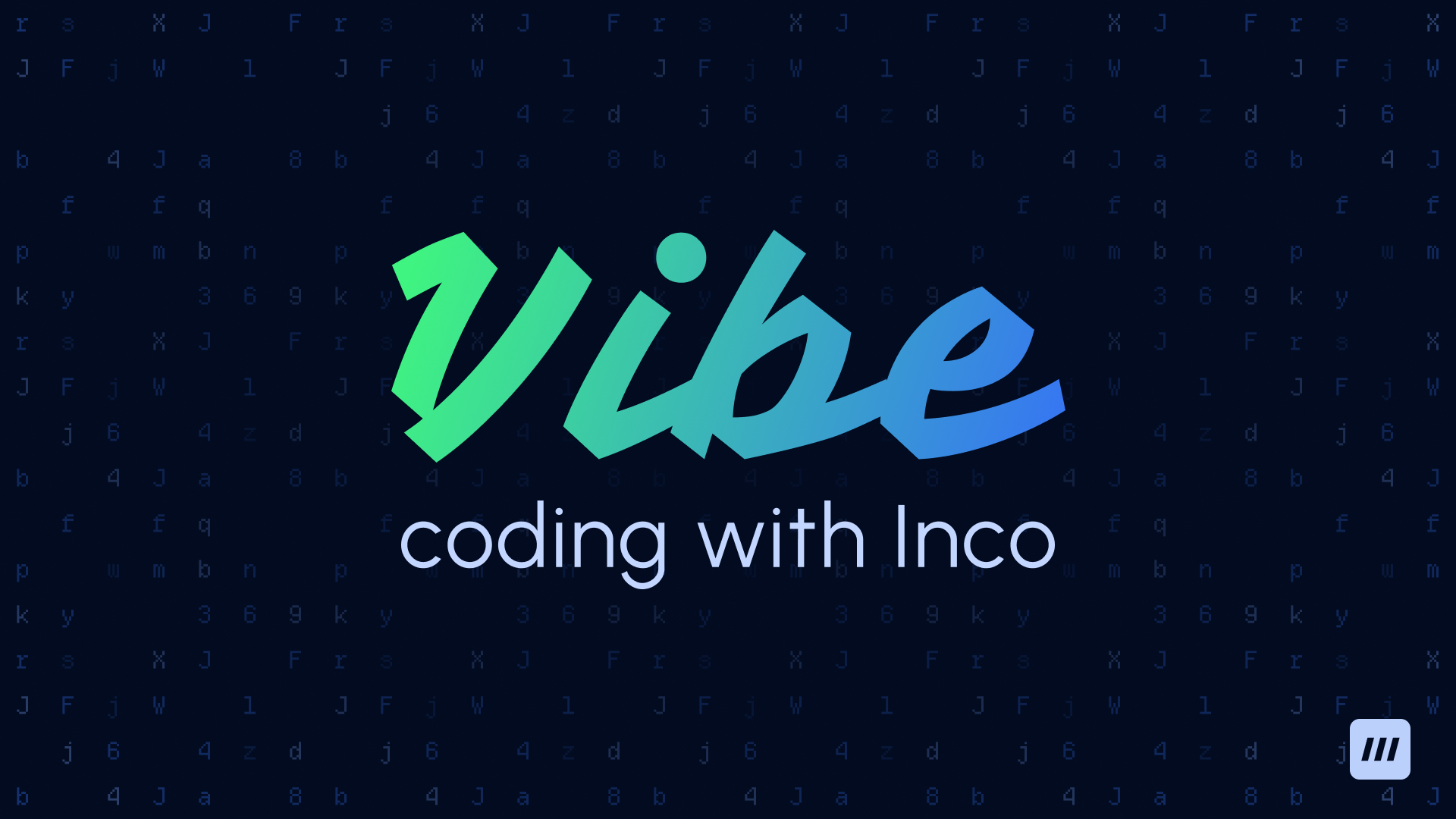Private Payment
Full-stack privac for blckchains
Inco powers blockchains with fast, programmable privacy, protecting address and transaction details to unlock new use cases across payments, DeFi, onchain finance, gaming, governance, and more.
Backed by leading investors

.png)









.png)








Research
ur innvatins
Inco augments existing blockchains with confidentiality.
Encrypted state onchain
Store encrypted data directly onchain and conceal selected information to build new use cases powered by confidentiality.
Confidential composability
Perform state transitions on encrypted data fully onchain while maintaining seamless confidential composability between applications.
The cnfidentialit stak
An end-to-end solution leveraging enterprise-grade cryptographic methods.
Fully Homomorphic Encryption (FHE)
The "holy grail" of encryption: compute on encrypted data without having to decrypt it.
Multi-Party Computation (MPC)
Secure decryption using a secret key split among multiple parties so no single participant has access.
Trusted Execution
Environment (TEE)
Privacy-preserving and verifiable compute in a hardware-secured execution environment.
.png)
Deply seamlessl wit yur existin tls
Start building with familiar EVM and SVM tooling.
Latst nws
FAs
No. Inco is not a new blockchain. It provides a confidentiality layer that integrates seamlessly with existing blockchains. Similar to TLS/SSL for the internet, Inco offers a novel encryption layer that developers can opt into for building confidential dapps.
No. Inco abstracts away all the cryptographic complexities. You can simply write your code using familiar smart contract languages like Solidity and use your existing development tools.
Our testnet currently runs on Base Sepolia. We plan to support additional chains in the future.
.svg)
.svg)

.png)







%201.png)

.jpg)


.png)
